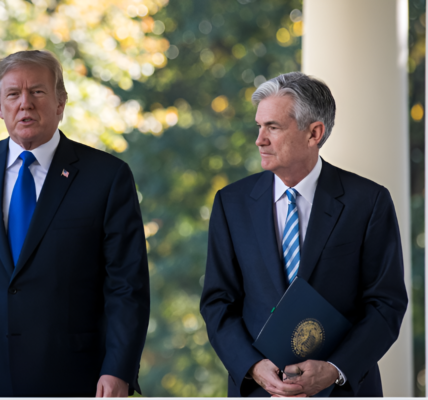
President-elect Donald Trump’s swift cabinet appointments have sent a clear message: loyalty to Trump himself and a knack for showcasing that loyalty on national television are the ultimate qualifications.
But the real drama will unfold as Senate Republicans decide how to respond to Trump’s picks. Will the Senate maintain its role as a co-equal branch of government, or will it simply rubber-stamp the decisions of a president who commands immense loyalty among the GOP base?
The upcoming confirmation battles will test whether any Republican senators are willing to stand against Trump’s most controversial choices. While most of the 53 GOP senators in the incoming Senate are expected to fall in line, a select group—particularly those freed from the pressures of future elections—could emerge as a powerful check on Trump’s authority.
The “Lame Duck Caucus”
This bloc of senators, often labeled as the “lame duck caucus,” includes those who won’t face Republican primary voters again, insulating them from Trump’s most potent weapon: his control over the GOP base. These senators, liberated from political calculations, may be more willing to challenge Trump’s agenda.
However, this doesn’t mean every senator opposing Trump’s appointments is retiring. Some have built their political identities around independence, like the senior senators from Maine and Alaska.
For others, the freedom to dissent comes from timing. Senators up for reelection in 2026 and 2028, who might not seek another term, could play pivotal roles in thwarting Trump’s plans. Their votes could make or break the confirmations of Trump’s most polarizing appointees and influence his broader agenda.
Key Senators to Watch in 2026
- Mitch McConnell (Ky.): As the longest-serving Senate leader in U.S. history, McConnell’s potential retirement looms large. Known for his partisan pragmatism, McConnell might use his remaining time in the Senate to steer the GOP away from Trump’s isolationist tendencies.
- John Cornyn (Texas): Having narrowly missed becoming Senate GOP leader, Cornyn may reconsider running for reelection at age 73. If he chooses to retire, the Texan could act as a Bush-era Republican, unafraid to challenge Trump.
- Susan Collins (Maine): Poised to lead the Appropriations Committee, Collins will carefully balance her moderate stance with the demands of a Republican base increasingly aligned with Trump.
- Bill Cassidy (La.): Cassidy, who voted to convict Trump during his impeachment, could break ranks again. Representing a deeply pro-Trump state, Cassidy’s potential departure from the Senate might embolden him to take bold stands.
- Thom Tillis (N.C.): Tillis faces a precarious political landscape, with the possibility of both a challenging primary and a tough general election. His willingness to defy Trump may depend on whether he’s ready for another round of high-stakes campaigning.
- Joni Ernst (Iowa): Ernst has shown signs of aligning more closely with Trump but remains a wildcard. If offered a cabinet position, her departure could alter the Senate dynamics significantly.
The Class of 2028
- Lisa Murkowski (Alaska): Murkowski, one of the few remaining senators to vote for Trump’s impeachment, has demonstrated remarkable independence. Alaska’s ranked-choice voting system could allow her to defy Trump without fear of political retribution.
- Chuck Grassley (Iowa): At 91, Grassley is unlikely to face significant political risks. His potential retirement could free him to challenge Trump’s policies without concern for voter backlash.
- Todd Young (Ind.): Young’s refusal to endorse Trump in 2024 suggests he may continue to forge his own path, despite representing a deeply conservative state.
- Jerry Moran (Kan.): A low-profile traditionalist, Moran could use what might be his final term to quietly dissent from Trump’s agenda.
The Bigger Picture
This cohort of GOP senators, whether motivated by principle, personal legacy, or political calculus, could serve as a rare check on Trump’s power. Their willingness to oppose him will be tested early, as they decide whether to confirm or reject his most contentious nominees.
But the stakes go beyond cabinet appointments. These senators could reemerge later in Trump’s term to challenge his policies on tariffs, foreign relations, or other power plays.
Ultimately, their actions—or inactions—will shape not only Trump’s presidency but also the future of the Republican Party. The question is whether they’ll stand firm or continue the uneasy dance between ally and adversary that has defined Trump’s relationship with the GOP.





